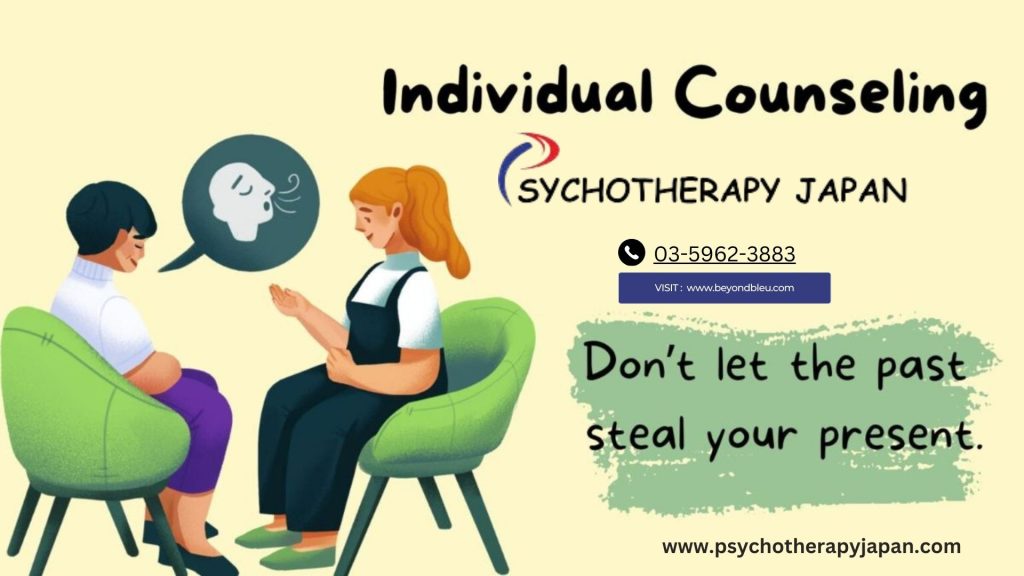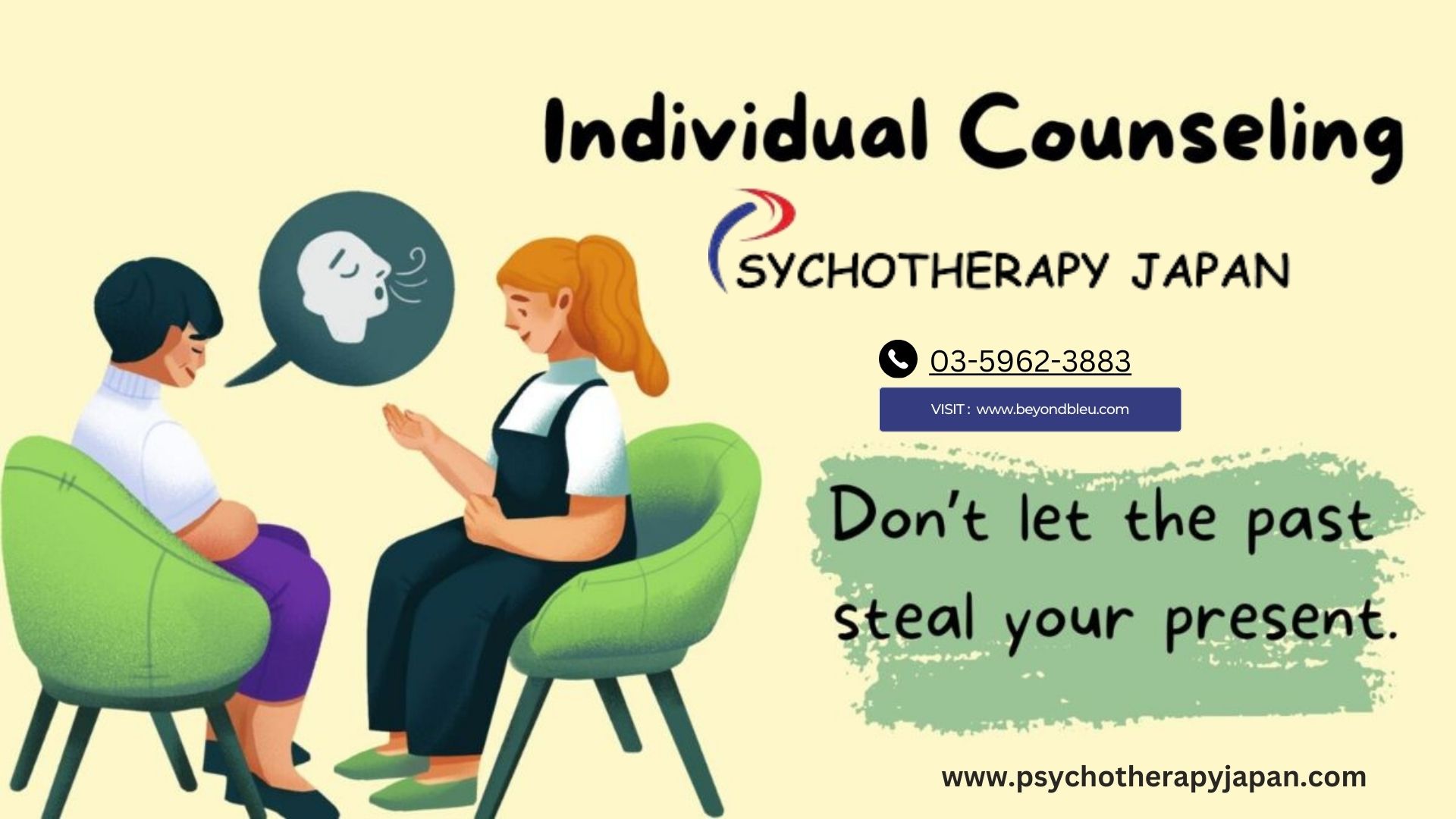What is Individual Counseling?
Individual counseling , also known as personal therapy, is a therapeutic practice that involves a one-on-one interaction between a client and a licensed mental health professional. This process allows individuals to explore their thoughts, emotions, and behaviors in a safe and confidential environment. It is particularly beneficial for those dealing with personal issues, mental health disorders, or life transitions.
Key Attributes:
- Entities:
- Therapist: A licensed professional trained in various therapeutic modalities.
- Client: An individual seeking support for personal issues.
- Therapeutic Environment: A confidential space where clients can express themselves freely.
- Attributes:
- Personalized Care: Each session is tailored to address the unique challenges faced by the client.
- Confidentiality: Everything discussed remains private, fostering trust and openness.
- Goal Setting: Therapists work with clients to establish clear objectives for therapy, helping to track progress and outcomes.
- Values:
- Improved Mental Health: Facilitates better management of mental health conditions.
- Personal Growth: Encourages clients to explore their identities and values, leading to self-improvement and fulfillment.

Individual Counseling for Relationship Issues
Relationships can be a significant source of joy, but they can also bring challenges that affect emotional well-being. Individual counseling provides a space to work through these issues, focusing on personal feelings and behaviors that impact relationships.
Key Attributes:
- Entities:
- Therapist: Guides the client through their emotions and relationship dynamics.
- Client: Engages in therapy to understand their role in relationship difficulties.
- Relationship Issues: Includes communication barriers, trust issues, and emotional disconnects.
- Attributes:
- Trust Building: Techniques aimed at rebuilding trust between partners, which is essential for healthy relationships.
- Communication Improvement: Strategies to enhance dialogue, understanding, and emotional sharing between individuals.
- Emotional Support: Provides a safe space to discuss feelings of hurt, anger, or confusion related to relationships.
- Values:
- Stronger Relationships: Fosters healthier connections with partners, family, and friends.
- Improved Emotional Connection: Enhances intimacy and understanding, allowing relationships to flourish.
Center for Individual & Family Therapy
A center for individual and family therapy offers a comprehensive range of mental health services designed to address both personal and family-related issues. Such centers typically employ various therapeutic modalities to cater to the diverse needs of clients.
Key Attributes:
- Entities:
- Therapy Center: A facility that provides mental health services.
- Therapist: Professionals trained in multiple therapeutic approaches.
- Client: Individuals and families seeking support.
- Attributes:
- Family Counseling: Services designed to improve family communication and resolve conflicts.
- Individual Sessions: Focused therapy tailored to the needs of the individual.
- Specialized Care: Expertise in various therapeutic modalities, including cognitive-behavioral therapy (CBT), emotionally focused therapy (EFT), and more.
- Values:
- Family Harmony: Aims to create a supportive environment for family members.
- Personal Development: Encourages self-improvement and understanding for each family member.
Emotionally Focused Individual Counseling
Emotionally focused individual counseling (EFIT) is a therapeutic approach that helps clients identify, understand, and manage their emotions. By exploring emotional responses, clients can gain insight into how their feelings affect their relationships and overall well-being.
Key Attributes:
- Entities:
- Emotions: Central to the therapeutic process, encompassing a range of feelings.
- Therapist: Guides clients through emotional exploration and healing.
- Client: Engages in therapy to understand their emotional responses.
- Attributes:
- Emotional Exploration: Deep investigation into personal emotional patterns, leading to greater self-awareness.
- Therapeutic Techniques: Methods that assist clients in processing and expressing emotions effectively.
- Values:
- Emotional Regulation: Improves the client’s ability to manage emotions in various situations.
- Personal Healing: Supports recovery from past traumas and emotional distress.
Group Counseling vs. Individual Counseling
Choosing between group counseling and individual counseling is a common dilemma for those seeking therapeutic support. While both approaches have their advantages, understanding the differences can help individuals make informed decisions.
Key Attributes:
- Entities:
- Group: A gathering of individuals undergoing similar challenges, facilitated by a therapist.
- Therapist: Provides guidance and support in both settings.
- Client: Individuals participating in either group or individual therapy.
- Attributes:
- Peer Interaction: Group counseling fosters shared experiences, allowing individuals to learn from one another.
- Focused Therapy: Individual sessions provide tailored attention to personal issues, creating a space for deep self-exploration.
- Values:
- Peer Support: Community reinforcement and encouragement among group members.
- Personalized Care: Tailored strategies addressing unique client needs in individual sessions.
Individual Counseling in Houston
In Houston, individuals seeking counseling services have access to a variety of mental health professionals. Local therapy centers offer numerous options for those in need, accommodating various specialties and therapeutic approaches.
Key Attributes:
- Entities:
- Therapy Center: Facilities providing counseling services in Houston.
- Therapist: Local professionals trained in various therapeutic modalities.
- Client: Individuals seeking support for mental health issues.
- Attributes:
- Location: Easy access to local services enhances convenience for clients.
- Specialization: Expertise in different areas, such as trauma, anxiety, and relationship counseling.
- Values:
- Accessibility: Local therapists make mental health services more reachable for clients.
- Community Support: Local professionals who understand the unique challenges faced by Houston residents.
Benefits of Individual Counseling
The advantages of individual counseling are numerous. From enhancing self-awareness to providing emotional support, this therapeutic approach can significantly improve mental health.
Key Attributes:
- Entities:
- Therapist: A trained professional who facilitates the counseling process.
- Client: An individual seeking therapy for personal issues.
- Attributes:
- Emotional Healing: Supports recovery from trauma and emotional pain, allowing individuals to heal.
- Personal Growth: Encourages self-reflection, leading to personal development and resilience.
- Values:
- Enhanced Well-being: Contributes to better mental and emotional health outcomes.
- Stress Reduction: Teaches coping strategies to manage everyday stress effectively.
Individual Autism Therapy
Autism therapy includes specialized interventions tailored to the unique needs of individuals on the Autism Spectrum. This type of therapy focuses on improving social skills, communication, and emotional understanding.
Key Attributes:
- Entities:
- Therapist: Professionals trained in autism-specific interventions.
- Client: Individuals on the Autism Spectrum receiving therapy.
- Attributes:
- Behavioral Therapy: Techniques aimed at modifying behaviors that may impede social interactions.
- Emotional Regulation: Strategies that help clients manage their emotions and understand social cues.
- Values:
- Improved Communication: Enhances clients’ ability to express thoughts and feelings effectively.
- Social Skills Development: Fosters better social interactions and relationships, leading to increased confidence.
Individual Counseling for Infidelity
Infidelity can be a devastating experience that disrupts trust in relationships. Individual counseling provides a supportive environment for clients to process feelings of betrayal and navigate the complexities of recovery.
Key Attributes:
- Entities:
- Therapist: A trained professional who specializes in relationship issues.
- Client: Individuals coping with the emotional aftermath of infidelity.
- Attributes:
- Emotional Processing: Helps clients understand their feelings and responses to infidelity.
- Trust Rebuilding: Offers strategies to rebuild trust and security within relationships.
- Values:
- Healing from Betrayal: Supports clients in recovering from emotional trauma associated with infidelity.
- Strengthening Relationships: Guides clients toward healthier, more open communication in their relationships.
Stages of Individual Counseling
Understanding the stages of individual counseling can enhance the therapeutic experience. Typically, the process involves several key stages:
Key Attributes:
- Entities:
- Therapist: Guides the client through each stage of therapy.
- Client: Engages actively in the therapeutic process.
- Stages:
- Assessment: The therapist evaluates the client’s needs, issues, and goals.
- Goal Setting: Together, the therapist and client establish clear, achievable objectives for therapy.
- Intervention: The therapist implements strategies tailored to the client’s unique challenges.
- Evaluation: Progress is regularly assessed, allowing for adjustments to treatment as needed.
- Values:
- Structured Approach: Provides a clear framework for the therapeutic process.
- Client Empowerment: Involves clients in their healing journey, enhancing engagement and commitment.
FAQs About Individual Counseling
1. What types of issues can individual counseling help with?
Individual counseling can address a wide range of issues, including anxiety, depression, relationship problems, trauma, grief, and self-esteem challenges.
2. How long does individual counseling typically last?
The duration of counseling varies based on individual needs. Some clients may benefit from a few sessions, while others may engage in long-term therapy.
3. Is individual counseling confidential?
Yes, individual counseling is strictly confidential, ensuring that clients can speak openly about their thoughts and feelings without fear of judgment or disclosure.
4. How do I know if individual counseling is right for me?
If you are facing emotional challenges or seeking personal growth, individual counseling can be an effective way to gain insight, support, and strategies for managing your situation.
5. Can individual counseling help with relationship issues?
Yes, individual counseling can provide valuable support for relationship challenges, helping clients navigate their feelings and improve communication.
Conclusion
Individual counseling is a powerful tool for personal growth and emotional healing. Whether addressing specific issues or seeking general support, this therapeutic approach offers valuable insights and strategies for enhancing mental health. If you are considering therapy, remember that seeking help is a courageous step toward a healthier, more fulfilling life.

